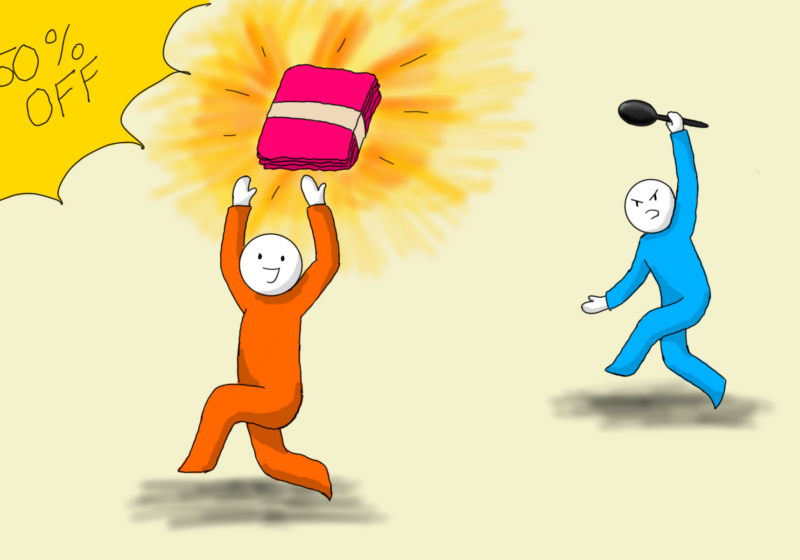Tapingo can seem like a miracle, but in practice, it’s too-often a messy affair.
At non-peak times of the day, Tapingo functions as designed, not interfering with the preparation of in-person orders. This falls apart in the spikes of ordering between class.
Dozens of Tapingo orders pour in at these times, especially at high-demand locations like Starbucks and the new Peet’s and OptiKale joints. This leads to a spike in demand that workers simply cannot meet, which would never occur in a physical line. Physical lines and counters limit how high demand can get, with a long line deterring less-wanting customers and a physical cashier limiting how quickly orders can stream in.
Try to imagine Peet’s Coffee with no additional employees or coffee-making equipment but infinite cashiers. That’s what Tapingo is doing. Tapingo might have a virtual line, but it’s nothing more than a queue for orders that have been placed, lacking overflow prevention.
These problems boil down to one primary difference between physical lines and Tapingo’s virtual line: their capacity to deter people from ordering. As a physical line gets longer, the rate at which people join decreases due to the increased effort required to order. With Tapingo, a long line means a longer wait but no added effort, since waiting in a virtual line is passive. This means that more people decide that ordering is worthwhile, inflating demand to include customers that have less stake in actually receiving their order. This, in turn, leads to orders that are never picked up or are picked up late. Customers who showed up wait longer all for the sake of customers who can’t be bothered to retrieve their orders.
Place a cap on the Tapingo line. Limiting the Tapingo queue to, say, 10 or 15 orders during peak points would deter noncommittal customers and help to quelch the flood of orders at those times. This change would help customers who wait in the physical line and ones who use Tapingo by cutting wait times caused by staff and resources being overwhelmed by superfluous demand.




